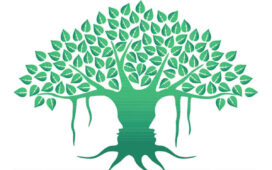
The flatpack field hospital can be flown to a disaster area by helicopter and assembled quickly. The recently launched pop-up hospital is made up of 72 waterproof solar-powered 38 cm3 cubes, each weighing under 15 kg, and has small ICUs, an operating theatre and key equipment, including a portable X-ray and ultrasound machines, and ventilators. Five trained people can assemble the cubes into a functional hospital in an hour, and each can treat 200 patients. This innovation actually changes lives by saving them.
Flatpack hospitals can be lifesavers as they can be reconfigured quickly. For example, if it’s sent to an earthquake-hit area, the medical team can pack more cubes containing equipment for bone injuries and remove some of the bleeding injury kits needed for soldiers with bullet or bomb injuries. This is more than just jugaad. With its robust tech backbone and trained human resource, India must invest in such crucial, public-centric innovations that solve the challenges of the world. Besides saving lives and dealing with emergencies, such inventions can very well be diplomatic goodwill tools to build stronger ties with the world, especially fellow developing countries.











